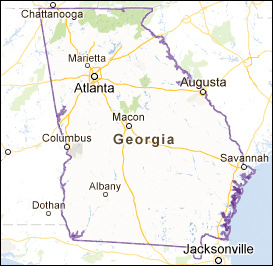By Jim Ellis
Nov. 9, 2020 — A few races were called over the weekend, while political overtime drags on for others.

Alaska senate race still undecided between physician and commercial fisherman, Democrat Al Gross (left), and first-term Republican incumbent Dan Sullivan.
The North Carolina situation remains frozen. Sen. Thom Tillis (R) holds a 95,739-vote lead with all counted but those ballots that could come in through Nov. 12. It appears the universe of requested ballots not yet returned could only be a maximum of approximately 116,500. The ballots must now be in the mail stream as they would have to have been postmarked on Nov. 3. Mathematics suggest a Tillis victory will occur, but such a declaration is not yet official.
As we know, both Georgia Senate races will advance to their respective runoff elections on Jan. 5. The political battles feature Republican Sen. David Perdue (49.7 of requested ballots not yet returned) and Democrat Jon Ossoff (47.9 percent). The special election features Democratic Rev. Raphael Warnock (32.9 percent) and appointed Republican Sen. Kelly Loeffler (25.9 percent).
The House races are not fully complete, as 24 contests remain in abeyance. At this point, Republicans have gained a net five seats among the 411 campaigns that have been decided. Of the remaining 24, the GOP candidates lead in 18, but many will likely flip back toward the Democrat as counting concludes. In the end, it is likely that the Republicans will gain between seven and nine seats, meaning they will hold 208 to 210 House seats as compared with 227 to 225 for the Democrats.
In the past few days, the following races have been declared and the winners are listed below:
AZ-6: Rep. David Schweikert (R)
CA-50: Darrell Issa (R) – Open Seat – Republican hold
GA-7: Carolyn Bourdeaux (D) – Open Seat – Democratic gain
IN-5: Victoria Spartz (R) – Open Seat – Republican hold
MI-3: Peter Meijer (R) – Open Seat – Republican gain
MI-8: Rep. Elissa Slotkin (D)
MI-11: Rep. Haley Stevens (D)
MN-1: Rep. Jim Hagedorn (R)
MN-2: Rep. Angie Craig (D)
NV-3: Rep. Susie Lee (D)
NV-4: Rep. Steven Horsford (D)
NJ-2: Rep. Jeff Van Drew (R)
NY-4: Rep. Kathleen Rice (D)
PA-7: Rep. Susan Wild (D)
PA-8: Rep. Matt Cartwright (D)
PA-10: Rep. Scott Perry (R)
PA-17: Rep. Conor Lamb (D)
WA-3: Rep. Jaime Herrera Beutler (R)
The remaining races are still undecided:
Continue reading






